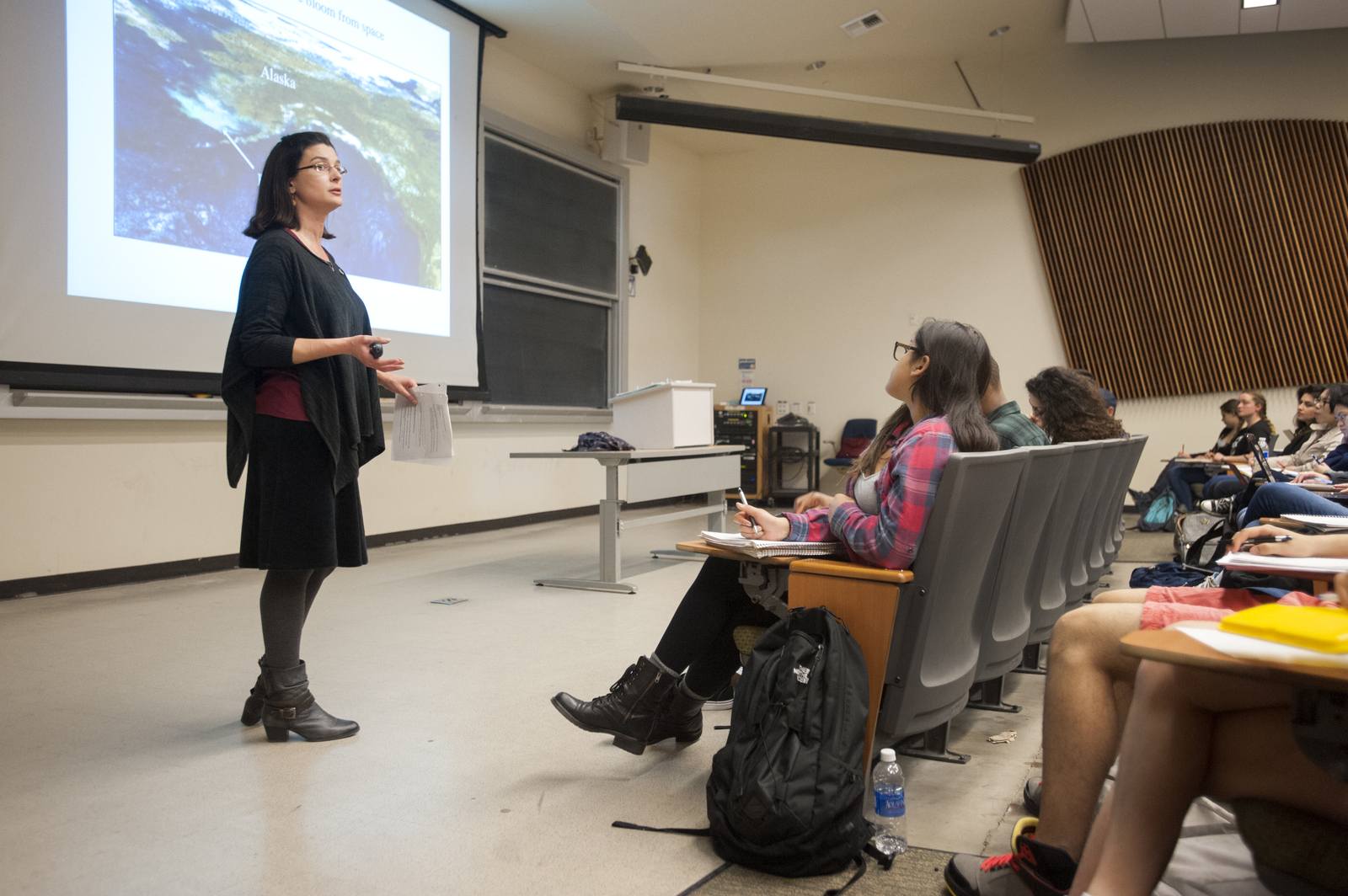
After nearly 20 years in climate change research and teaching, marine biogeochemist Tessa Hill knows the importance of helping students engage their critical thinking skills.
“When it comes to big problems like climate change, what we need are people who are going to think critically and logically about these problems,” she said. “The most rewarding part of teaching are the students who don’t necessarily pursue science as a career, but get a taste of how to think scientifically during their time at UC Davis,” Hill said.
Hill teaches a core course on the oceans and a variety of classes in oceanography. Students and colleagues have praised her passion for communicating science. “Tessa is a role model for students, both for her research and her efforts in communicating science to the public at all levels,” said Isabel Montañez, a fellow professor in the Department of Earth and Planetary Sciences. “Students wax on about her approachability, her nature and her ability to translate difficult subjects.”
Hills's research focuses on the impact of climate change on marine ecosystems. She uses marine fossils and corals to determine the rates, magnitudes and effects of climate change, as well as the response and adaptations of species to environmental change.
Throughout her career, Hill has dedicated time to science communication and outreach. She attributes her crackerjack communication skills to undergraduate teaching. “The single most valuable thing I’ve ever done is teach a large lecture course at UC Davis,” she said. “When you have to get up every day and stand in front of an auditorium of 200 students who are not science majors, you start to figure out how to communicate science.”
Hill grew up in the Pacific Northwest on the shores of Washington’s Puget Sound. An urge to see a different coast brought her to Eckerd College in St. Petersburg, Florida, where she earned a bachelor’s degree in marine science. She then pursued a doctoral degree at UC Santa Barbara. Hill is an associate professor in the Department of Earth and Planetary Sciences and at the UC Davis Bodega Marine Laboratory, and associate director of the UC Davis Coastal and Marine Sciences Institute.
Hill’s research, teaching and outreach was recognized this year with a Presidential Early Career Awards for Scientists and Engineers. The PECASE award is the highest honor bestowed by the U.S. Government on science and engineering professionals in the early stages of their independent research careers. She has undergone training in communicating climate science from the American Geophysical Union and the Compass Group, and was recently awarded a communication fellowship from the American Association for the Advancement of Science.
Hill said she sparks interest in science by offering real world examples of how students interact with science every day — the weather, news stories and why a pot heats up faster than the water that will boil in it.
“It’s not about learning facts,” Hill said. “I try to connect science to their everyday lives.”
— Becky Oskin, content strategist in the UC Davis College of Letters and Science.
